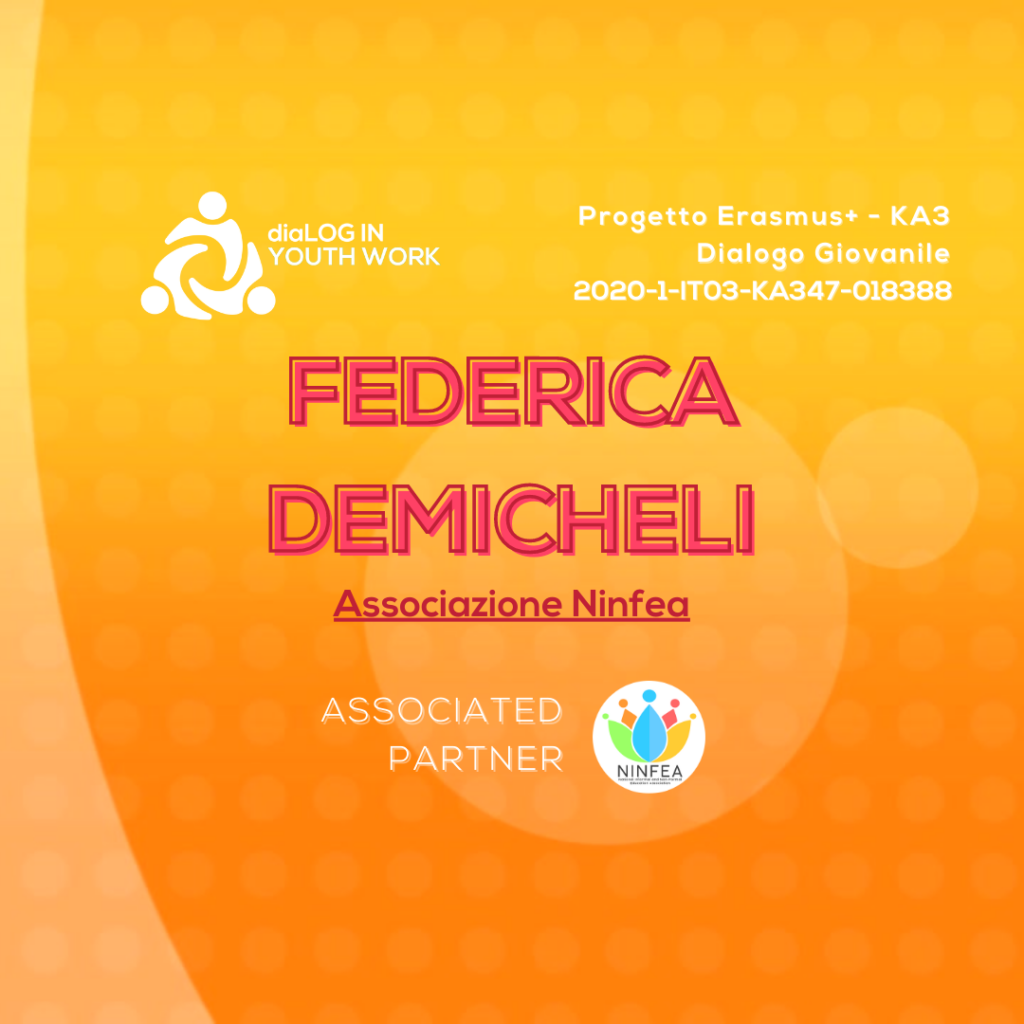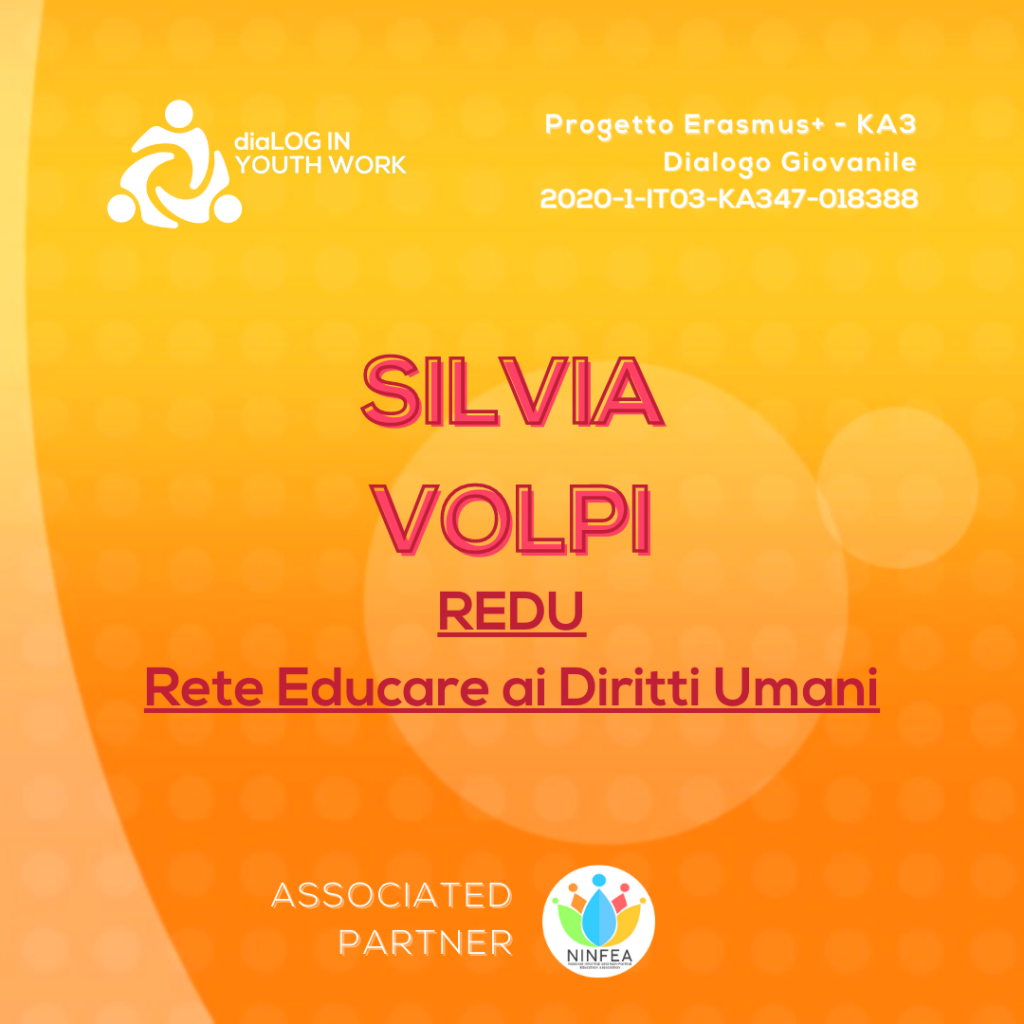Fourth pearl of Youth Work, this time we talk to Salvi Greco. Salvi comes from a small town in the province of Lecce, called Martano and he has been working for many years in the Youth Work sector and not only.
This video interview is part of the cycle “Pearls of Youth Work“, a series of video interviews, with transcripts, carried out within the project DialogIn Youth Work, Erasmus Plus – KA347 – Youth Dialogue Projects.
Watch the full video:
Giosef Italy: What do you do in the field of Youth Work?
I have been active in the field of Youth Work since I was a young boy myself. Together with a group of friends, we founded an association back in 1990. At the beginning, they were mainly socio-cultural and artistic activities, but very soon we moved more into the educational dimension of Youth Work. About fifteen years ago, I embarked on the path of training, becoming a trainer in the educational field, a facilitator of learning processes, especially in the field of Youth Work and non-formal education. I also do a lot of counselling, although technically, this is not part of my business card.
Giosef Italy: What are competences and how are they certified in Youth Work?
Before talking about competences in Youth Work, I would like to make a small premise, more generally about the concept of competences, because competences are a very fascinating dimension, but also a very complex one, especially in the world we live in today.
A world that travels at very high speed, with its hyper-connections, with interdependencies that are now very clear to us. This makes us live in a world where we have the impression that we can do almost anything, especially because this world, as we live in it today, is actually a world where we do not really know what will happen in a few years’ time.
And so, the issue of skills also becomes more complex, because they are constantly being updated. We often read about the skills that will be needed in five years’ time, for example, and it is not easy to predict. So, the question is whether the skills we have now will be sufficient or whether they will be needed at all in a few years’ time.
All this also adds many elements of uncertainty in the personal development.
Another important aspect regarding competences before entering into the more specific area of Youth Work is that there has probably never been a single concept of competences. Competences are the approach to differences, competence frameworks are different, from sector to sector, they are not assessed and certified, formalised in the same way, on the contrary.
And this is very important to consider for our sector, the youth work sector in the European context, because certifying competences in a unique and unequivocal way can be a big risk. There is a risk of standardisation of competences, which I think is not very useful.
One may enter a company thanks to one’s educational qualification, but everything happens then, once one has entered the company, the various advances, career advancements, promotions, and these no longer take place on the basis of qualifications, but on the basis of processes that are carried out within the company and that allow a person to be promoted and have a career advancement.
Therefore, this work of certification, of formalisation is important, but it is necessary to understand how it is done, who does it and, above all, perhaps it should refer to that specific sector. So, a lot of attention should be paid to the processes of evaluation and then possibly of formalisation of a given competence or competence areas.At least in our sector, that of youth work in the European context in particular, and then I hope even more so at national level, it is necessary to work on the identification of the recognition of one’s own competences. All this is not only functional, let’s say, to one’s working and professional dimension, but it is something that makes us more aware of ourselves and gives us the possibility to better navigate that complex and fascinating world we were talking about at the beginning.
Giosef Italy: What is the role of self assessment for the recognition of competences in Youth Work?
First of all, I would say to be careful not to be fooled by that little prefix “self”, because we are not talking about self-assessment, but about a process that it is advisable, strongly advisable, not to do alone.
In the context of Youth Work, which is very much based on non-formal education, on group work, on being in a group, on sharing with other people, it is essential to be supported in the process of self-assessment.
We say that self-assessment is a necessary step towards what we call recognition, and when we talk about recognition, especially in our sector, we immediately think of recognition from the outside world, sometimes not so well identified.
But when we talk about self-assessment and recognition of competences, it would be important to start this process of recognition of oneself and one’s competences. Having said that, I think that self assessment and the process of self-assessment can be considered a beautiful journey into oneself. A beautiful inner journey that gives us the possibility to discover things that, until you stop for a moment to think and reflect on yourself, you still did not know. In order to do this work of reflection and self-assessment you have to make space for yourself and carve out time for yourself. I know this may sound like the obvious, if not banal, but it is actually what we hear most often from people: where do I find the time to stop? Because it could be considered a luxury. At this point, having spoken about the importance of self assessment, of recognising oneself with one’s own competences, one might say, but how do you do a self assessment process?
For a few years now, I have been involved in the training and cooperation project called YOKOMO, a pilot project that lasted almost two years dedicated precisely to recognition. It is dedicated to youth workers working in the international field and the so-called competence model, , with 8 areas of competence. Among them, there is the ability to facilitate learning activities and the ability to design learning activities, team collaboration, capacities, skills, let’s say at intercultural level etc. Each of these areas of competence is addressed to the youth workers. Each of these areas of competence is developed through four elements which are those that in our sector define competence, namely knowledge, skills, attitudes and behaviour. These 8 competence areas, articulated through these four elements, have many headings that explain what can be meant by knowledge, skills, attitudes and behaviour. So, this competence model, with its 8 competence areas, is a sort of guide and in many cases it can even make us realise that we have already done something, that we have already decided many things we were not aware of. It is really a sort of inventory – not complete, obviously – of many things that are part of our work that we have already done, perhaps very well or excellently, but of which we were simply not aware.
So, this is a really good tool to navigate within the competences, especially for youth workers.
Feedback, for example, is another thing that can be used. Once you have done your own self-assessment, try to come up with something that can lead you to get feedback from someone. What is the importance of this? Once you are aware. And this awareness allows us to be much more ready when we have to answer some call in the professional field and for the umpteenth time, I repeat, not only in the professional field, but also in the way we live and in which we relate.



